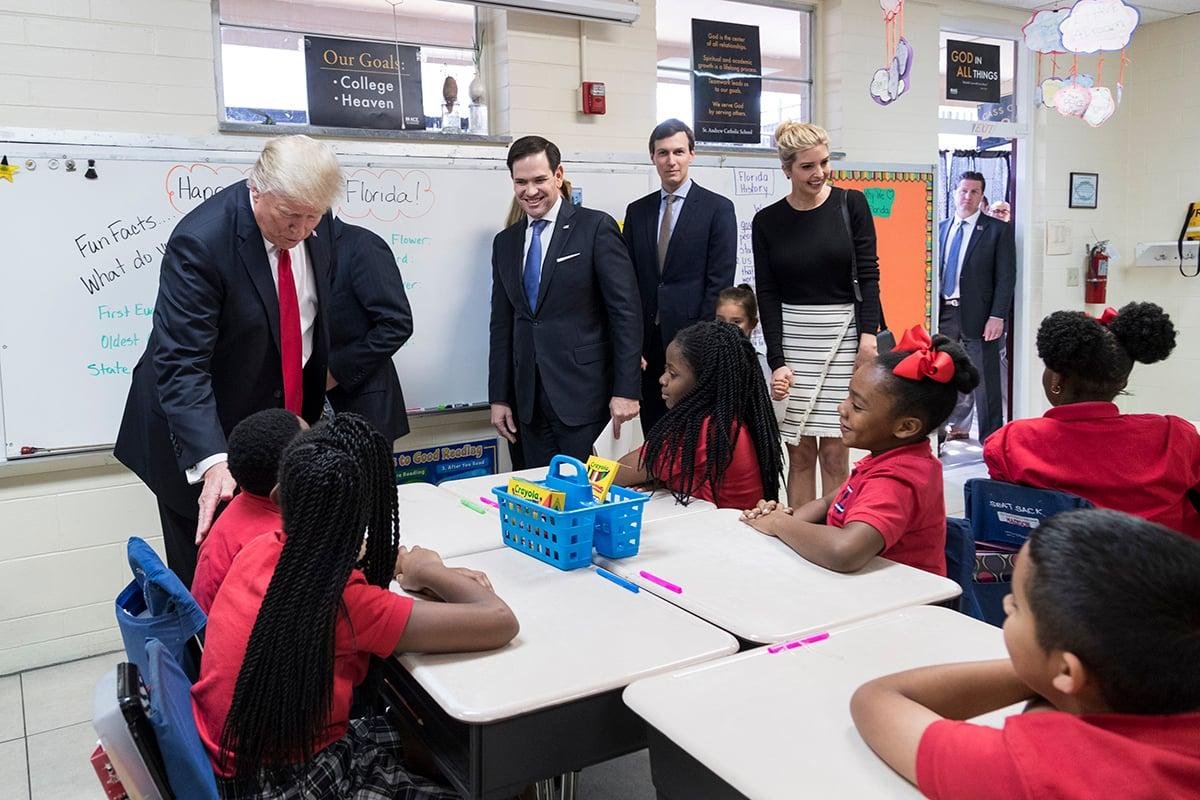Business
Donald Trump’s Bold Move to Eliminate the Department of Education Sparks Worries in Arizona Schools

Arizona educators are expressing concerns that President-elect Donald Trump may act on his campaign promise to dismantle the Department of Education, fearing significant repercussions for the state’s public schools. At a Wisconsin rally in September, Trump remarked, “We will drain the government education swamp,” indicating a desire to eliminate what he sees as ineffective government spending.
Historically, conservatives have aimed to dismantle this department since its inception under President Jimmy Carter. Trump designated Linda McMahon as his choice for secretary of education, affirming that education should be returned to the states. This announcement came on November 19, further amplifying worries among educators about the potential for decreased federal oversight.
Trump’s education policies appear grounded in cultural arguments, emphasizing the removal of “transgender ideology and left-wing indoctrination” from classrooms. Education experts suggest his plans may involve distributing federal education funds directly to states, thereby shifting more control from federal mandates to state authorities. Yet, critics raise red flags about how congressional mandates will be upheld, particularly regarding protections for low-income students and students with disabilities.
Opponents warn that state control could lead to misallocation of federal funds, such as diverting resources toward vouchers for private and charter schools, which may deepen educational disparities. In Arizona, the state’s voucher program is already under scrutiny, costing taxpayers $332 million for the 2023-2024 academic year, with projections indicating that figure could rise to $429 million.
Marisol Garcia, president of the Arizona Education Association, expressed concerns about the potential impact of Trump’s proposals on vulnerable student populations. Her experiences in low-income schools highlighted how a lack of funding can hinder timely recognition and support for students with learning disabilities. “The U.S. Department of Education plays a crucial role in safeguarding educational equity,” she remarked.
While the complete dissolution of the Department of Education would require congressional approval—a feat complicated by the Republican majority’s inability to reach the threshold needed to bypass Democratic opposition—state and local educational choices are primarily governed outside federal control. Currently, federal funding accounts for only 10% of overall school financing, with the bulk provided by state and local taxes.
The Department of Education distributes around $28 billion annually for vital programs like Title I and the Individuals with Disabilities Education Act (IDEA), enforcing essential educational rights. Proposals suggest that enforcement mechanisms could be shifted to the Justice Department, though education advocates worry this could deprioritize education-related cases.
Senator Mark Kelly (D-Arizona) condemned Trump’s proposals, suggesting they could exacerbate existing funding challenges in Arizona’s public schools. He claimed, “These vouchers have decimated funding for public schools in the state,” reinforcing the anxiety surrounding potential changes in federal education policy.
Recent analysis ranks Arizona poorly in educational metrics such as graduation rates and funding. Meanwhile, some residents, like Trump supporter Holli Yates, remain hopeful that the president’s approach could yield improvements. Yates relocated to California due to frustrations with overcrowded classrooms and insufficient attention for her son in Arizona.
Historically, the Department of Education was elevated to Cabinet status by Carter in 1979, igniting debates that continue today. As stakeholders await the new administration’s direction, opinions vary significantly on the potential impacts of these sweeping changes, especially concerning federal funding for programs crucial to Arizona’s education system.
Meanwhile, advocates like Max Eden of the American Enterprise Institute predict that even if Trump does not fully abolish the Education Department, oversight and budget alterations are likely, potentially shifting some responsibilities to other federal entities. Conversely, Weadé James of the Center for American Progress warns of the dire consequences that could ensue, particularly for struggling states reliant on federal aid.


















